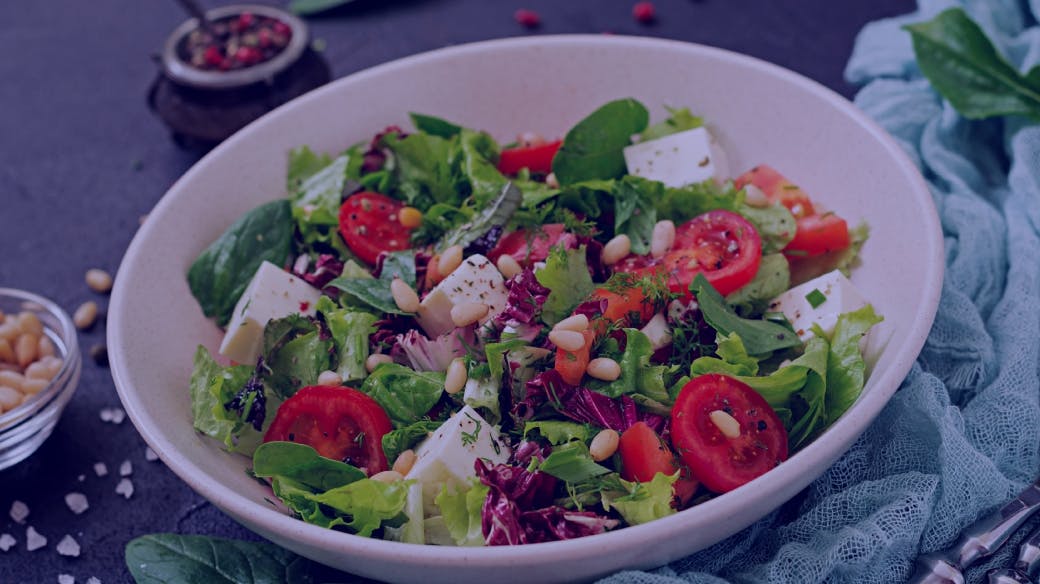Food is a central part of our lives. One growing trend many are exploring is vegetarianism, which focuses solely on plant-based foods. Understandably, some may worry about getting enough protein since many vegetarian dishes are primarily composed of vegetables and starches, which are typically low in protein. However, did you know that some plants are packed with protein—enough to replace animal protein in your diet?
Today, let’s discover these high-protein plants that help maintain a balanced protein intake while promoting good health. Open your mind to new experiences with plant-based proteins and enjoy the benefits of a vegetarian lifestyle!
Plant-Based vs. Animal-Based Proteins: What’s the Difference?
Before diving in, let’s clarify how plant-based and animal-based proteins differ—and whether they can truly substitute for each other.
Animal-Based Proteins
· Quality: Rich in essential amino acids the body needs.
· Drawbacks: High in saturated fats and cholesterol, which, when consumed excessively, can lead to obesity, heart disease, and high blood pressure. Additionally, meat production has significant environmental impacts.
Plant-Based Proteins
· Clean Source: Safer for the body in appropriate quantities and environmentally friendly, reducing greenhouse gas emissions.
· Health Benefits: Easily absorbed, low in saturated fats and cholesterol, high in fiber, and lower in calories than animal proteins. Perfect for those aiming to lose weight or build muscle.
For those observing a vegetarian or vegan diet, particularly during festivals, it’s essential to choose a variety of high-protein plants to ensure a complete amino acid profile.
The Benefits of Plant-Based Proteins
Plant-based proteins are suitable for all ages and provide numerous health benefits, including:
1. Lowering Cholesterol - Plant proteins contain no cholesterol or saturated fats, helping reduce blood cholesterol levels and the risk of obesity and heart disease.
2. Promoting Digestive Health - High in dietary fiber, they support digestion, prevent constipation, and reduce the risk of colon cancer.
3. Weight Management - With fewer calories and higher fiber, plant proteins keep you full longer, helping control portion sizes.
4. Reducing Inflammation - Packed with antioxidants like lycopene and beta-carotene, plant proteins can combat inflammation and protect cells.
5. Boosting Immunity - Rich in essential vitamins and minerals, such as vitamin C, vitamin A, folate, magnesium, and iron, they enhance immunity and overall health.
6. Nourishing Skin - Antioxidants and vitamin E in plant proteins promote healthy, youthful skin and reduce wrinkles.
High-Protein Plants to Try
For Muscle Building
· Soybeans: 40g protein/100g — A complete protein source used in tofu, soy milk, and protein powders.
· Black Sesame Seeds: 23.3g protein/100g — Supports muscle repair post-workout with essential fatty acids.
· Sunflower Sprouts: 23g protein/100g — Rich in amino acids and antioxidants, ideal for energy and muscle growth.
· Quinoa: 14g protein/100g — High in fiber and a complete protein, great for muscle recovery.
For Weight Loss
· Spinach: 5.2g protein/100g — Low-calorie, high-fiber superfood that keeps you full.
· Bean Sprouts: 4.2g protein/100g — High in protein and fiber, aiding digestion and metabolism.
· Asparagus: 2.4g protein/100g — Contains inulin, which supports digestion and fat metabolism.
· Cauliflower: 2g protein/100g — A low-calorie substitute for rice or carbs.
What Is Plant-Based Protein Powder? Who Is It For?
Plant-based protein powder is a popular supplement extracted from soy, peas, brown rice, or pumpkin seeds. It can consist of a single plant type or a blend. Ideal for:
1. Lactose-intolerant individuals.
2. Vegans, vegetarians, or those observing plant-based diets.
3. Weight-loss enthusiasts.
4. Those building muscle.
5. People aiming for better overall health.
6. Seniors.
7. Patients needing protein for recovery.
Easy High-Protein Plant-Based Meals
Want to try plant-based eating? Here are some simple, protein-rich dishes to start with:
1. Soy milk with toppings.
2. Stir-fried bean sprouts with tofu.
3. Quinoa, spinach, and avocado salad with sesame dressing.
4. Stir-fried asparagus with sunflower sprouts.
5. Thai sour curry with cauliflower.
Now you know the benefits of plant-based proteins and the variety of high-protein plants available. So, there’s no need to worry about meeting your protein needs on a vegetarian diet.
Wishing you good health! Don’t forget to check out more health services at https://www.krungthai-axa.co.th/th/products/health-insurance-and-hospital-income/ihealthy-ultra
References:
· Lemon Farm (Health Society Co., Ltd.)
· Nutrilite Thailand
· Happy Life / BLA Happy Life
· Safe and Save Pharmacy


